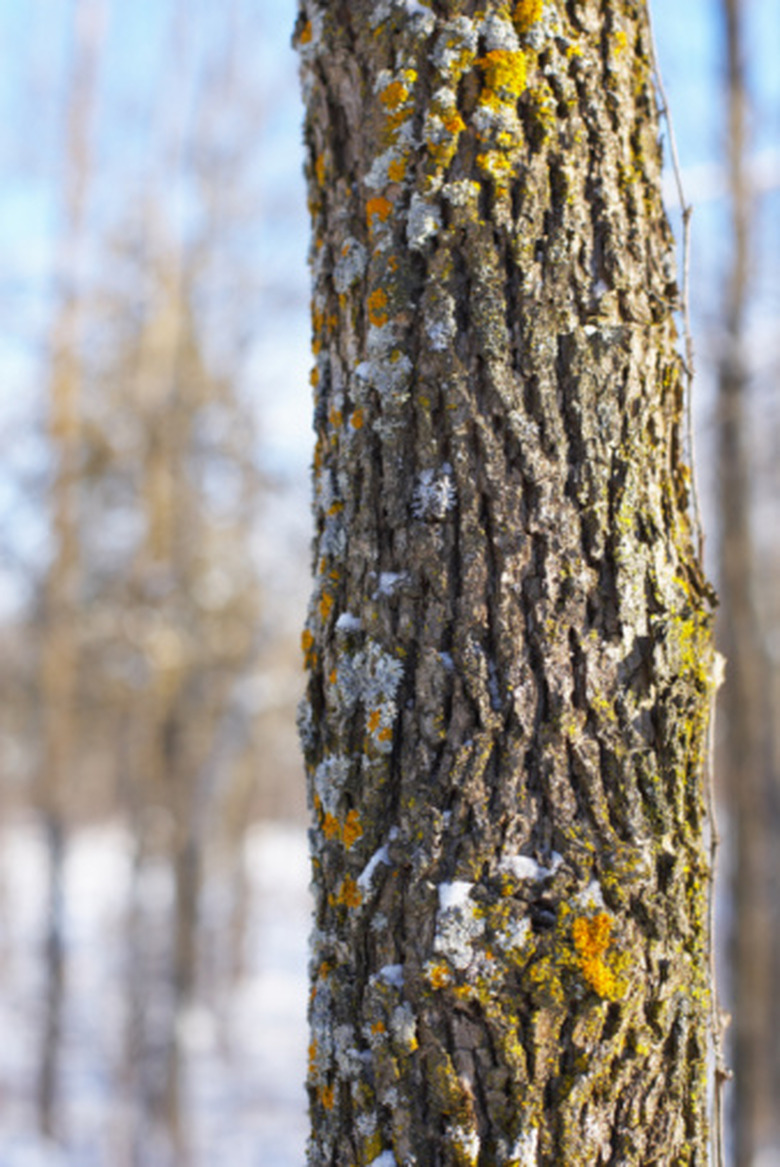How To Rid A Tree Of Lichens
Things Needed
- Stiff-bristled brush
- Sponge
- Bucket
- Mild detergent
- Pruning shears
- Fertilizer
Tip
Look for other reasons than lichens if your tree is in decline. Check for poor soil nutrition, lack of water or too much water, insufficient light, insects and diseases. Prompt treatment can help the tree recover so it can put out fresh foliage and shade out lichens.
Warning
Do not remove more than one third of the tree's canopy in any given year. That will weaken the tree's ability to produce food through photosynthesis.
It's easy to mistake lichens as the cause of tree or branch death because they tend to grow on sick trees. In fact, the reason they turn up is because a sick tree has a thin canopy and lets in the sun that makes lichens grow. Spraying is not recommended to control these plants, which are a combination of fungi and algae. There are ways to control lichens though the pruning and rejuvenation of the sick tree.
Step 1
Brush lichens from the bark and branches with a stiff-bristled brush. Use enough pressure to dislodge the lichen, but not enough to scratch or tear the bark.
Step 2
Mix a bucket of water with a teaspoon of mild detergent. Dip a soft sponge in the solution and scrub the bark and branches gently to dislodge lichens.
Step 3
Prune away stubbornly encrusted branches with pruning shears or a pruning saw in early fall or early spring. Cut up the pruned branches and dispose of them, lichens and all, in yard waste bags to prevent lichens from blowing back onto the tree.
Step 4
Move sprinklers if they are spraying the tree's trunk and branches on a regular basis. Set them where the spray does not contact the trunk and turn them off on windy days when mist blows against the tree.
Step 5
Plant fast-growing trees like pin oak, willow, sycamore, white pine or cottonwoods 15 to 20 feet away from the affected tree. The extra trees will decrease light penetration in the affected tree's canopy.
Step 6
Fertilize the affected tree once a year in early spring with a balanced fertilizer that contains nitrogen, phosphorus and potassium. Sprinkle it on the soil at the rate recommended on the label for the size and age of the tree.
